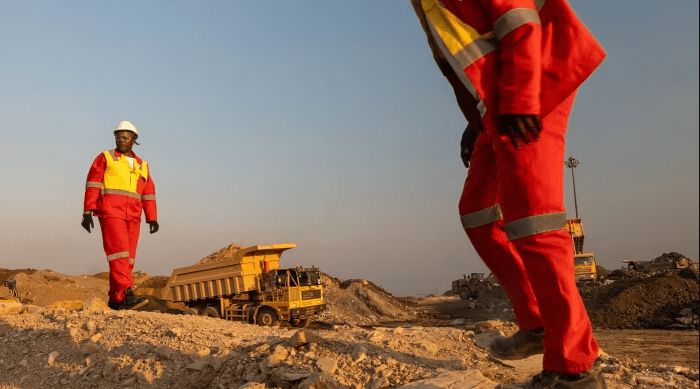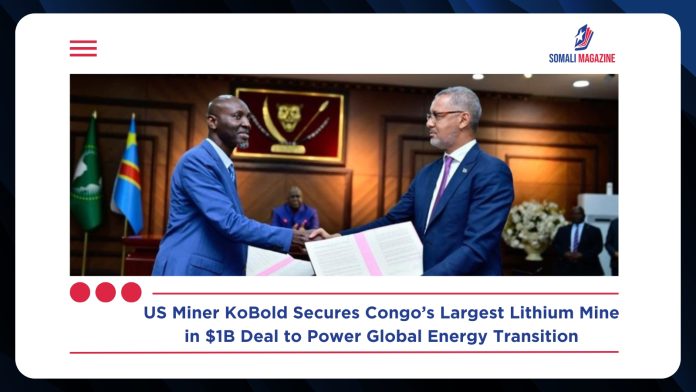Facebook Twitter (X) Instagram Somali Magazine - People's Magazine
US miner wins big deal to exploit Congo’s largest lithium mine, marking a seismic shift in the global race for critical minerals as KoBold Metals, a California-based startup backed by billionaires Bill Gates and Jeff Bezos, secures access to the Manono deposit—one of the world’s richest untapped lithium reserves. The agreement, signed in Kinshasa with the Democratic Republic of Congo (DRC) government, positions the United States as a major player in Africa’s mineral landscape and signals a new era of tech-driven, sustainable mining.
KoBold Metals plans to invest over $1 billion in the DRC’s mining sector, beginning with the Manono site in Tanganyika Province. The company will deploy artificial intelligence to accelerate exploration, reduce environmental disruption, and streamline the path from discovery to production. Lithium, a key component in electric vehicle batteries and renewable energy storage, is in soaring demand globally, and the Manono deposit could become a cornerstone of future supply chains.
The deal comes amid a backdrop of geopolitical competition, with China currently dominating Africa’s cobalt and lithium sectors. KoBold’s entry into the DRC is seen as a strategic move to diversify sourcing and reduce Western dependence on Chinese-controlled supply routes. The DRC already supplies over 70% of the world’s cobalt, and its lithium potential has remained largely untapped due to legal disputes and infrastructure challenges.
KoBold’s agreement also aims to resolve a long-standing dispute involving Australian firm AVZ Minerals, China’s Zijin Mining Group, and the Congolese government. The Manono license had been split following AVZ’s revoked rights in 2023, stalling development. Under the new arrangement, KoBold will develop the southern portion of the deposit, while Zijin retains the northern section. AVZ is expected to receive compensation and relinquish its claims, clearing the way for KoBold’s operations.

President Félix Tshisekedi has welcomed the deal, describing it as a “transformational partnership” that will boost economic growth, create jobs, and enhance the DRC’s role in the global energy transition. KoBold has pledged to involve local communities, invest in infrastructure, and digitize the country’s geological archives to support future exploration.
The company’s approach blends cutting-edge technology with environmental stewardship. By using AI to pinpoint mineral-rich zones, KoBold aims to minimize unnecessary drilling and land clearance, reducing ecological impact. Its model could set a new standard for responsible mining in Africa, attracting other investors seeking sustainable practices.
Despite lithium prices falling by over 80% since their 2022 peak, demand is expected to rebound as electric vehicle adoption accelerates. Analysts say the Manono project could reshape global lithium markets and give the US a strategic foothold in the clean energy supply chain.
The DRC’s mining sector has long been plagued by corruption, exploitation, and instability. KoBold’s entry, backed by high-profile investors and a commitment to transparency, offers a chance to rewrite that narrative. If successful, the project could serve as a blueprint for ethical, tech-enabled resource development across the continent.
As the world pivots toward green technologies, the race for critical minerals is intensifying. With this landmark deal, the US is staking its claim, and the DRC is stepping into the spotlight as a key player in the future of energy.

